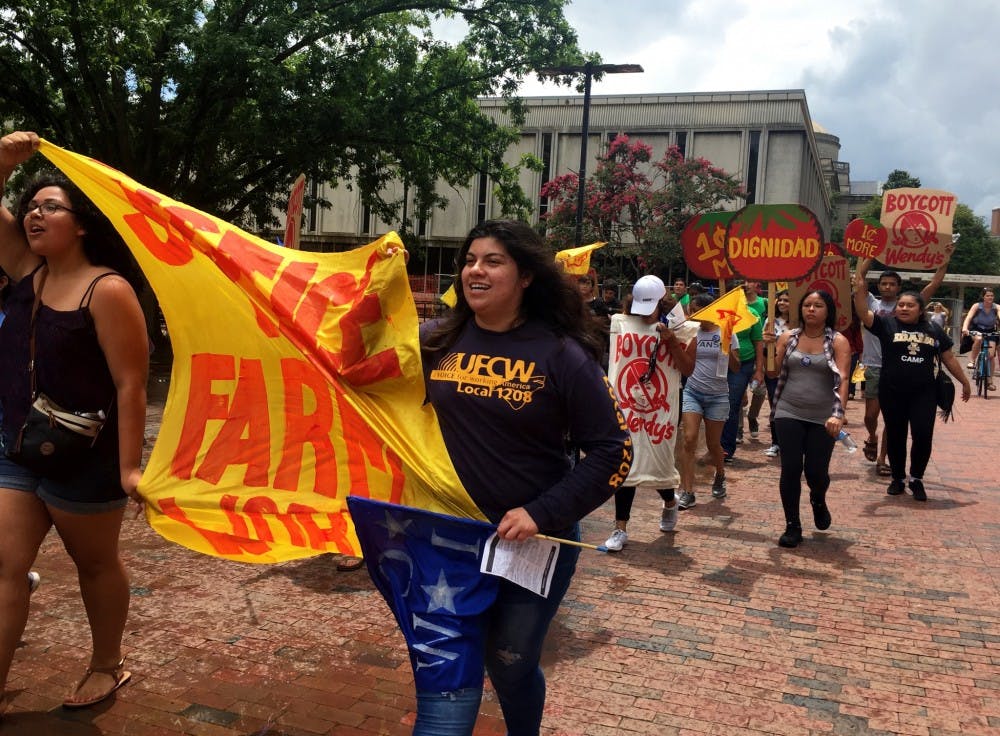CORRECTION: Due to a reporting error, the original version of this story misspelled Scott Myers' and Lupe Gonzalo's last name incorrectly. The interaction with Myers was incorrectly reported and updated.
UNC students, members of Student Action with Farmworkers and other local residents joined the farmworker leaders of the Coalition of Immokalee Workers in a Boot the Braids protest on Friday demanding the removal of Wendy's from UNC's campus. They marched from the upper quad to the Frank Porter Graham Student Union outside of Wendy’s with picket signs to raise awareness for their cause.
The protest was part of CIW's national boycott of Wendy’s because of the restaurant’s refusal to join their Fair Food Program, according to a press release. The Fair Food Program, which won the CIW the 2014 Presidential Medal for Extraordinary Efforts to Combat Human Trafficking, ensures that retailers purchase their produce from suppliers with a worker-driven Code of Conduct. According to the CIW, Wendy’s buys its tomatoes from Mexican farms, where numerous systemic human rights violations have taken place, such as sexual abuse and slavery.
Sarah Benecky, an intern for the Alliance for Fair Food and a senior anthropology and global studies double major, said she wants people to think about how their food purchases could be farmed by people who work in modern day slave conditions.
“I think the only way to ensure that that's not happening, and we're having food with dignity and just food, is to get corporations to sign on to the fair food program, which is really a powerful initiative by the coalition that guarantees the protection of workers, prevents violence and provides an outlet for workers to contact if they feel unsafe and protect against sexual abuse,” Benecky said.
Carolina Dining Services Interim Director of Auxiliary Services Scott Myers came to the protest, listened to their demands and accepted a letter from the protesters, Benecky said.
Lupe Gonzalo, a farmworker with the CIW, said the campaign was led by students who are taking an active interest in where their food is coming from. She was translated by Yaissy Solis, an employee for Student Farmworker Alliance.
“And so we're seeing that students taking an interest in this, and they're supporting us in this campaign, and also calling on corporations like Wendy's to take that responsibility,” Gonzalo said. “And so when the students learn about this, they also get inspired to not just learn, but also take action. We're working together for justice, respect, and for human rights.”




